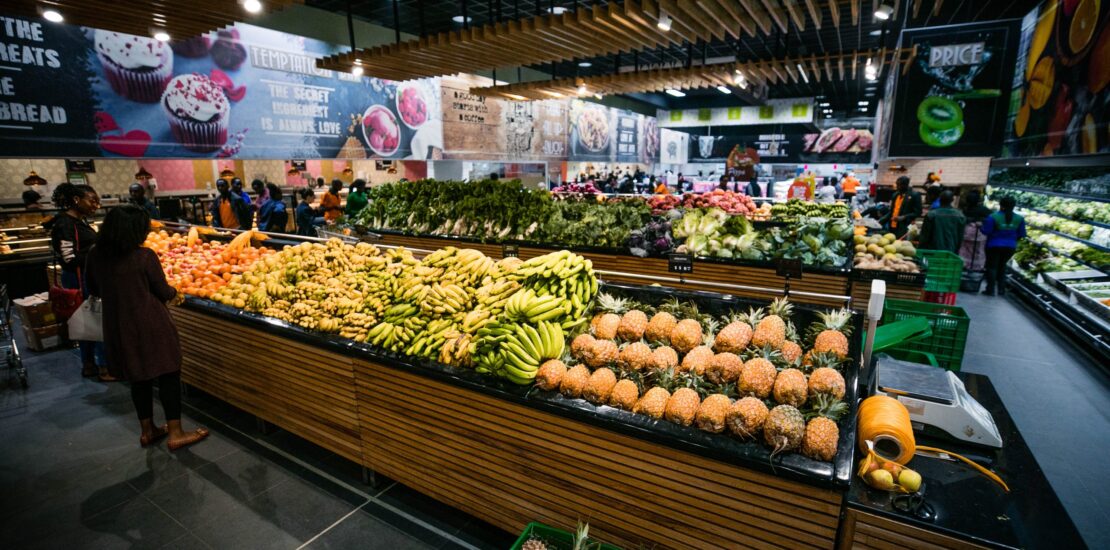News Digest: Agri-food markets
- 19/11/2020
- Posted by: Emmanuel Bourcelet
- Category: Bananas, Citrus fruits, Mangoes, News

AFRICA
UEMOA encourages consumer interest in local products
On the occasion of the first “October, month of local consumption” in its eight member states, the West African Economic and Monetary Union (UEMOA) aims to counter the growing disinterest of West African consumers in local products (Commodafrica, 8 October). In a UEMOA market of 120 million consumers, African companies are faced with a growth in imports of food products. Encouraging the consumption of local products must also involve supporting national agriculture and protecting local products from competition from imports.
Côte d’Ivoire signs Economic Partnership Agreement with UK
The UK and Côte d’Ivoire have signed an Economic Partnership Agreement (EPA) maintaining existing trade arrangements (Gov.UK, 15 October). The agreement covers trade in goods, including provisions on rules of origin, and preferential tariffs and quotas, and is designed to take effect at the end of the transition period when the UK leaves the EU single market and customs union.
Ethiopian Airlines to source local produce for in-flight meals
Ethiopian Airline will source locally grown products and ingredients to prepare in-flight meals, helping to provide local farmers and agribusinesses with a new market that could reach $10 million (Commodafrica, 20 October). The airline has partnered with the US agency USAID, which will provide technical assistance to Ethiopian farmers and food producers to ensure that they are able to meet the airlines’ quality standards.
Kenya to resume mango exports to EU
Kenya is expected to resume exports of mangoes to the European Union in December after a period of 5 years (Fresh Plaza, 11 November). Benjamin Tito, Director of the Horticultural Crops Directorate, stated that the country has been able to manage fruit flies, the quarantine pests responsible for the ban, through the creation of pest-free zones in the mango growing areas.
Kenya: Industry players urge speeding up bilateral talks with UK
Fresh produce industry players in Kenya have expressed concern over the slow pace of negotiations between the government and the UK over trade agreements (The Star, 26 October). The Kenya Flower Council, Fresh Produce Export Association of Kenya, Fresh Produce Consortium of Kenya, and Kenya Airports Authority, among others, met to discuss the situation: with Brexit approaching, there are worries that Kenya might be locked out of bilateral agreements and forced to pay 8% excise duty.
Kenya launches marketing strategy to boost horticultural exports
Kenya has launched a year-long marketing communication strategy to help boost the country’s horticultural exports, aiming to achieve 10% export growth in 2020–2021 (CGTN Africa, 5 November). The Kenya Export Promotion and Branding Agency (KEPROBA) says the strategy will target horticultural exports in China, EU, Britain, Australia, United Arab Emirates, Russia and the USA. The strategy is a collaboration between the agency and Kenya Flower Council, Fresh Produce Consortium of Kenya, Kenya Airways, and Fresh Produce Exporters Association of Kenya.
Togo: Imported products subject to prior declaration
An interministerial order now subjects imported products to a prior declaration, allowing authorisation before the product enters the country (AgriDigitale, 13 October). This will enable, among other things, the valorisation of local specialities, aiming to encourage the population to consume local products Made in Togo.
Zimbabwe and UK launch trade deal
7 November saw the launch of a Zimbabwe/United Kingdom Trade Partnership Programme, which is poised to open market opportunities for Zimbabwean horticultural produce into the UK (The Herald, 11 November). The partnership will give up to 600 smallholder farmers access to the UK market on relaxed access terms, and the farmers will also receive financial support from the UK through its Foreign, Commonwealth & Development Office.
CARIBBEAN
Guyana: Linking with agriculture for a sustainable tourism sector
A virtual forum on 27 October was organised by the Inter-American Institute for Cooperation on Agriculture (IICA), Caribbean Tourism Organization (CTO), Guyana’s Ministries of Agriculture and of Tourism, Industry and Commerce, and COLEACP (IICA, 27 October). Participants discussed how the tourism and agriculture sectors, working together, can create an enabling environment that spurs investment by stakeholders in their bid to create a sustainable agritourism sector. View the full video at https://lnkd.in/dSt-Fxv
PACIFIC
Fiji to increase agricultural exports
Fiji expects its agricultural exports to be raised to 100 million Fijian dollars (about US$47 million) in the next 2 years from the current annual value of 50 million Fijian dollars (US$23 million) (XinhuaNet, 9 October). There are a number of programmes in place to support fast-track agricultural growth and development, including the agriculture ministry providing seeds and planting materials to over 33,000 Fijian households, and support to backyard gardening to serve the nation’s food and nutrition security.
EUROPEAN UNION
EU pest interceptions in citrus increased by 66%
EU rejections of citrus imports from third countries due to pests up to October have increased by 66% over the same period last year (Fresh Plaza, 5 November). Argentina had the most interceptions up to August, when the EU suspended imports from the country until April 2021; now Brazil is the country of origin with the most interceptions, mostly due to Phyllosticta citricarpa (citrus black spot).
Access2Markets
The European Commission has launched an online portal, Access2Markets, to help SMEs trade beyond the EU’s borders (EU Reporter, 14 October). The portal allows companies to look up tariffs, taxes, rules of origin, product requirements, customs procedures, trade barriers and trade flow statistics related to a specific product they want to import or export.
Germany: Carbon-neutral bananas add value
Fruitbox podcast 43 features a conversation with the chief executive of Port International, a Hamburg-based importer marketing CO2-neutral bananas under a new brand, “Be Climate”. “Every Be Climate banana has a QR code, so the consumers with their mobile phones can find out very easily that, by buying one kilo of bananas, they have compensated 940 g of CO2.”
UK more reliant on produce from climate-hit countries
The UK is increasingly reliant on fruit and vegetables imported from countries most vulnerable to the effects of the climate crisis (The Guardian, 9 November). A study finds that there has been a major shift in the UK, with imported tropical fruits such as pineapples and bananas on the rise while consumption of homegrown vegetables such as cabbages, carrots and peas declined.
GLOBAL
World banana production steadily increasing
According to the Food and Agriculture Organization (FAO), world production should increase by 10 million tonnes by 2029 (Fructidor, 3 November). Average world banana production increased from 69 million tonnes in 2000–2002 to 116 million tonnes in 2017–2019, and world production is expected to reach 126 million tonnes by 2029. Production is largely carried out informally by small-scale farmers. 15–20% of total banana production is traded on the international market and the balance is consumed locally.



